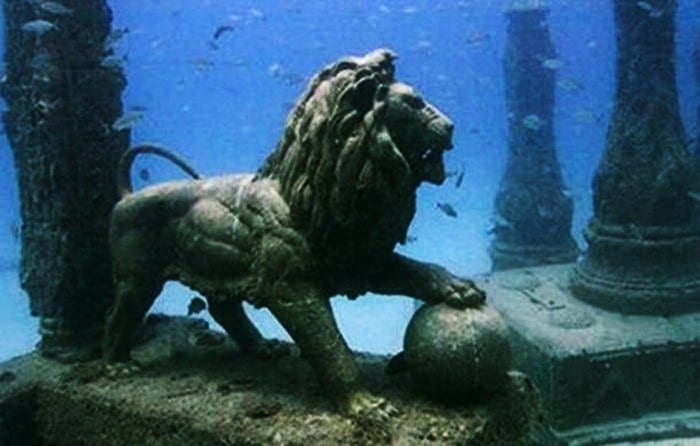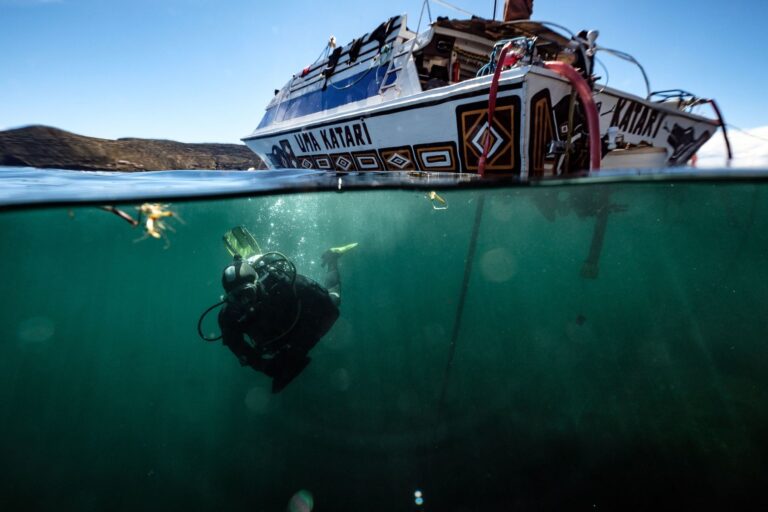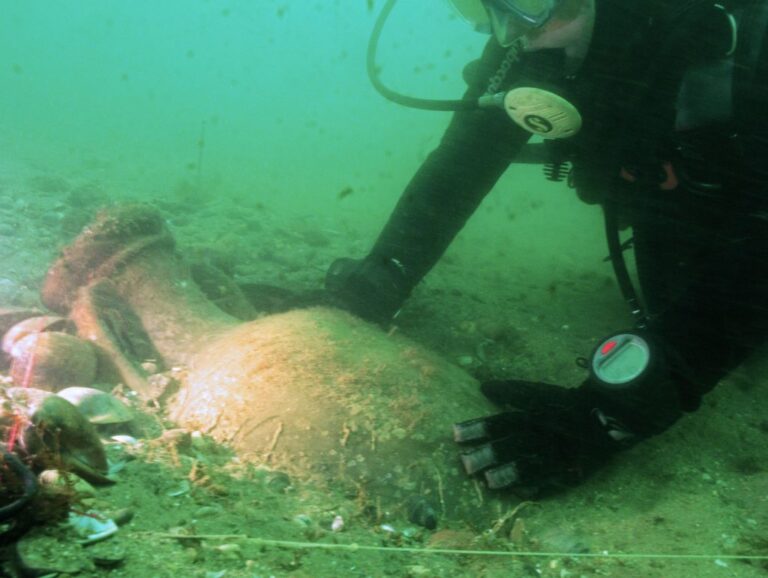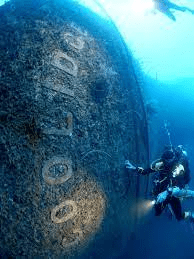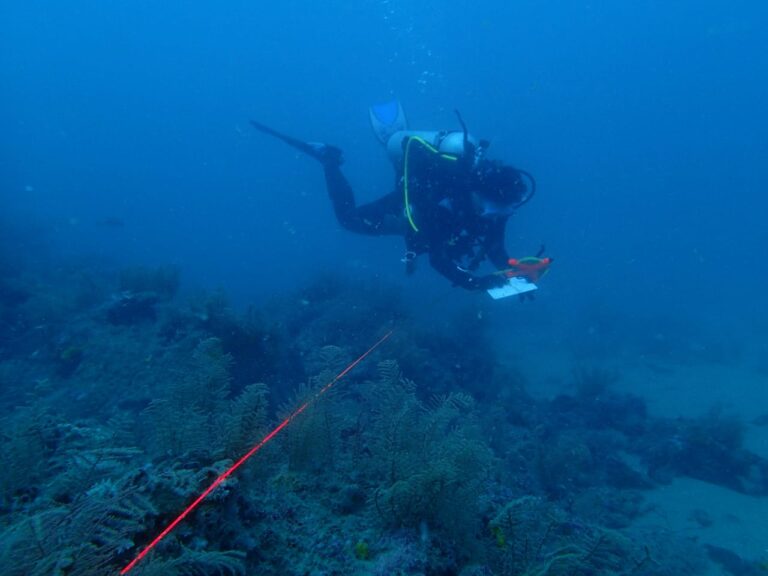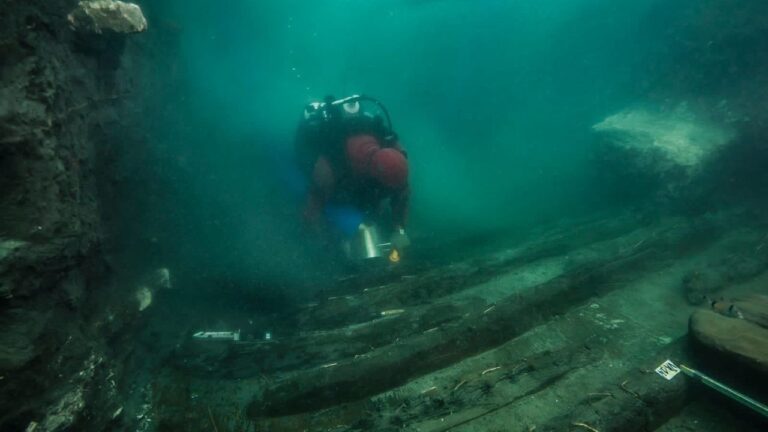Diving into Maritime History: Discoveries and Revelations
Maritime history is a captivating and often overlooked field that unlocks the secrets of our past. From the daring explorations of famous seafarers to the technological advancements that shaped our society, this intriguing world offers a fascinating glimpse into our shared heritage. In this article, we will explore the importance and relevance of studying maritime history and delve into the discoveries and revelations it has brought to light.
Understanding maritime history is essential for comprehending the global trade and societal shifts that have shaped our world. The maritime industry has played a pivotal role in facilitating the exchange of goods, ideas, and cultures throughout history. The Age of Exploration, characterized by intrepid sailors like Christopher Columbus and Vasco da Gama, opened up new trade routes and connected distant lands. The Industrial Revolution then revolutionized maritime transportation, propelling economic growth and transforming society. Exploring these key moments and eras allows us to grasp the profound impact that the maritime industry has had on our lives.
Maritime archaeology, a fascinating branch of study, uncovers sunken treasures and reveals their historical significance. Shipwrecks hold stories of past voyages, battles, and trading routes, shedding light on lost civilizations and forgotten tales. Through the meticulous use of methods and techniques such as underwater exploration and artifact preservation, maritime archaeologists fill gaps in our historical knowledge. By studying these underwater time capsules, we gain insight into the lives of those who lived centuries ago, unraveling mysteries of the deep sea.
While some maritime civilizations, such as the Greeks and Phoenicians, are well-known for their seafaring prowess, there are many lesser-known maritime civilizations that are equally deserving of recognition. These forgotten maritime civilizations contributed to cultural exchanges, developed advanced sailing techniques, and achieved remarkable feats that influenced the course of history. Exploring these maritime cultures allows us to appreciate their contributions and encourages us to preserve and learn from their stories.
Throughout maritime history, remarkable discoveries have reshaped our understanding of the past. Artifacts found in maritime contexts, whether it’s the steam-powered ship SS Great Britain or lost treasures from ancient shipwrecks, provide tangible evidence that connects us to our ancestors. These discoveries have not only enriched museums and historical collections but have also sparked discussions on cultural and societal significance. They serve as a reminder of our interconnectedness and the enduring legacies of the maritime world.
Looking to the future, ongoing research and advancements in the field of maritime history promise new revelations and insights. However, maritime historians continue to face challenges in accessing and preserving underwater heritage, as well as interpreting ancient texts and records. Despite these obstacles, the allure of maritime history remains strong. By exploring this fascinating field and contributing to its preservation, we ensure that future generations will continue to uncover maritime discoveries and revel in the stories that lie beneath the waves.
In conclusion, delving into maritime history offers us a unique perspective on our past and reveals the strong influence that maritime industries and civilizations have had on our world. By studying maritime history, we gain a deeper understanding of our global interconnectedness, the importance of cultural exchanges, and the technological advancements that have propelled our societies forward. As we dive into this captivating world of discoveries and revelations, we embark on a journey that bridges the gaps in our historical knowledge and shapes our appreciation for the diverse tapestry of human civilization.
Table of Contents
Historical Significance of Maritime Industry
The maritime industry holds a significant place in the annals of global trade and society. Its impact on the course of history cannot be overstated. From ancient times to the present day, maritime trade has facilitated the exchange of goods, ideas, and cultures across continents and oceans. Exploration and the quest for new routes have been integral to the development of maritime history.
One of the key moments in maritime history is the Age of Exploration. This era saw intrepid explorers like Christopher Columbus and Vasco da Gama venturing into the unknown, making daring discoveries, and forging new trade routes. The Age of Exploration opened up the possibility of transoceanic trade and established Europe as the dominant global power.
The Industrial Revolution subsequently transformed the maritime industry. The advent of steamships and the harnessing of steam power revolutionized transportation and trade. Maritime routes became even more efficient, and distant lands could be reached more quickly and easily. The British Empire, with its vast maritime capabilities, became the global hegemon.
Beyond trade, the maritime industry has had a profound impact on cultural exchanges and technological advancements. Cultural diffusion between different societies was facilitated through maritime trade. Ideas, customs, and even religions spread across the seas, shaping the history and identity of countless civilizations.
Moreover, the maritime industry laid the foundation for numerous technological advancements. The development of navigation techniques, such as compasses and navigational charts, enabled sailors to traverse vast distances with greater accuracy. Shipbuilding techniques constantly evolved, leading to the creation of more robust and seaworthy vessels. The use of advanced maritime technologies, such as sonar and satellite communication, continues to enhance safety and efficiency in the industry.
In conclusion, the maritime industry has played a pivotal role in shaping the world we live in. Its impact on global trade, society, cultural exchanges, and technological advancements cannot be overstated. The Age of Exploration and the Industrial Revolution stand as testament to the key moments and eras in maritime history, showcasing humanity’s desire for exploration and progress. Understanding the historical significance of the maritime industry provides valuable insights into the interconnectedness of nations and the evolution of our modern world.
Uncovering Sunken Treasures: Maritime Archaeology
Maritime archaeology, a fascinating field at the intersection of history and underwater exploration, plays a crucial role in unraveling the mysteries of the past. Defined as the study of human interactions with the maritime environment through the analysis of submerged cultural heritage, maritime archaeology offers a unique insight into our collective history.
One of the most captivating aspects of maritime archaeology lies in the exploration of famous shipwrecks and their historical significance. These underwater time capsules hold a wealth of information, providing a window into the past and shedding light on events that have shaped our world. From ancient vessels transporting precious cargoes, like the 17th-century Spanish galleon Nuestra Señora de Atocha, to infamous ships such as the Titanic, each shipwreck carries with it a unique story waiting to be uncovered.
Maritime archaeologists employ various methods and techniques to navigate the depths and investigate these submerged treasures. Utilizing advanced technologies such as sonar, remotely operated vehicles (ROVs), and underwater drones, they are able to search and document shipwrecks with unparalleled precision. Excavation techniques, like suction dredging and remote-controlled robotic arms, enable archaeologists to carefully extract artifacts from the seabed without causing damage or disturbance to the site.
Beyond the excitement of treasure hunting, maritime archaeology serves a crucial role in filling gaps in our historical knowledge. While written records often provide limited perspectives, the study of submerged cultural heritage allows us to gain a more comprehensive understanding of past maritime civilizations and their interactions with the sea. By examining shipwrecks and artifacts recovered from underwater sites, archaeologists can piece together the puzzle of our maritime past and offer valuable insights into maritime trade, seafaring techniques, and even daily life in different eras.
In conclusion, maritime archaeology brings us closer to the underwater wonders that have shaped our history. By defining and exploring the significance of this field, investigating famous shipwrecks, discussing methods and techniques used, and emphasizing its role in filling historical gaps, we gain a deeper appreciation for the invaluable knowledge that lies beneath the waves. Through the exploration of maritime archaeology, we can uncover sunken treasures and reveal stories that have long been forgotten, enriching our understanding of the past and preserving our maritime heritage for future generations.
Revealing Lost Stories: Forgotten Maritime Civilizations
Introduction to lesser-known maritime civilizations
In this section, we will delve into the fascinating world of forgotten maritime civilizations. While well-known ancient civilizations such as the Greeks, Romans, and Egyptians often dominate historical narratives, there are numerous lesser-known maritime civilizations that made significant contributions to seafaring and maritime trade. These civilizations, although often overshadowed, played a crucial role in shaping our understanding of maritime history.
Exploration of maritime cultures and their contributions
Throughout history, maritime cultures have thrived in coastal regions, harnessing the power of the seas for trade, exploration, and cultural exchange. By exploring these maritime cultures, we can gain a deeper appreciation for their innovative technologies, advanced shipbuilding techniques, and vast trading networks. These societies were often highly skilled in navigation, allowing them to venture across vast open waters and establish connections with distant lands.
Examples of maritime civilizations and their notable achievements
One such forgotten maritime civilization is the Phoenicians, whose seafaring skills allowed them to become the dominant maritime trading power in the Mediterranean during the 1st millennium BCE. Their ships, equipped with advanced navigational tools, sails, and trading goods, reached as far as Britain and West Africa. Another notable civilization is the Polynesians, renowned for their exceptional navigational skills, exploration of the Pacific Ocean, and establishment of trade routes throughout the islands.
Importance of studying forgotten maritime civilizations
Studying forgotten maritime civilizations provides valuable insights into the interconnectedness of ancient societies and their reliance on the seas for survival and prosperity. By uncovering the stories of these lost civilizations, we can understand the impact they had on the development of early maritime trade, cultural exchanges, and technological advancements. Furthermore, studying these civilizations allows us to appreciate the diversity and richness of human history, ensuring that their contributions are not forgotten.
Maritime Discoveries and their Impact
The realm of maritime history is rich in remarkable discoveries that have shaped our understanding of the past. Throughout maritime history, countless artifacts have been unearthed from the depths of the sea, shedding light on ancient civilizations and historic events. These discoveries have not only provided valuable insights into the lives of seafarers but also reshaped our narratives of history.
One such significant discovery is the shipwrecks that have been uncovered through the field of maritime archaeology. These sunken vessels carry with them stories of exploration, trade, and tragedy. From the famous wreck of the Titanic to ancient vessels like the Vasa, and numerous other shipwrecks, these archaeological finds have revealed precious artifacts, giving us a glimpse into the past. These discoveries have not only enhanced our knowledge of maritime technology, but also provided evidence of historical events and social practices.
Apart from shipwrecks, maritime history has also brought to light a wide array of historically important artifacts found in maritime contexts. From ancient trade goods like spices, pottery, and precious metals to navigational instruments and shipbuilding tools, these discoveries have uncovered the extent of global trade networks, technological advancements, and cultural exchanges that shaped the world we live in today. Each artifact tells a story, contributing to our understanding of the past and offering insights into how societies developed and interacted.
These maritime discoveries have had a profound impact on our understanding of history. They have reshaped narratives and challenged existing knowledge. For instance, the discovery of the 15th-century Portuguese ship, the Esmeralda, off the coast of Oman, revealed new insights into the maritime trade routes of the time and changed our understanding of global exploration. Similarly, the discovery of Phoenician wrecks in the Mediterranean highlighted their extensive trade networks, disputing previous assumptions about ancient seafaring capabilities.
The cultural and societal significance of each discovery cannot be understated. These artifacts connect us to our past, providing a tangible link to the lives and experiences of those who came before us. They allow us to reflect on the accomplishments, ingenuity, and resilience of maritime civilizations throughout history. Furthermore, the exploration and preservation of maritime sites and artifacts contribute to the narrative of human history and foster a deeper appreciation for the importance of maritime heritage.
In conclusion, the maritime discoveries made throughout history have had a profound impact on our understanding of the past. They have provided us with valuable insights into ancient civilizations, technological advancements, and the interconnectedness of global trade networks. These discoveries have reshaped our narratives of history and offer a glimpse into the lives of seafarers from different eras. By exploring and preserving maritime sites and artifacts, we can continue to uncover hidden stories and ensure that the legacy of maritime history remains alive for future generations.
The Future of Maritime History
With ongoing research and advancements in the field, the future of maritime history holds immense potential. Maritime historians are constantly unearthing new information and delving deeper into the mysteries of our past. [Ongoing research] is shedding light on previously unexplored aspects of maritime history and revealing surprising discoveries.
However, this field also faces several challenges. The scarcity of well-preserved historical records and artifacts poses a major obstacle for maritime historians. Additionally, the vastness of the world’s oceans presents a daunting task in terms of exploration and documentation. [Current challenges faced] by maritime historians require innovative approaches and the utilization of advanced technologies to overcome these barriers.
Despite these challenges, the future holds exciting prospects for maritime history. With the advancements in technologies like underwater robotics, sonar imaging, and DNA analysis, the potential for uncovering new discoveries is immense. [Future discoveries] may include unexplored shipwrecks, ancient trade routes, and unknown civilizations that have been lost to time. These new findings have the potential to reshape our understanding of history and shed light on forgotten aspects of maritime cultures.
As researchers continue to break new ground, it is crucial for individuals to recognize the importance of maritime history. The study of maritime history provides valuable insights into global trade, cultural exchanges, and technological advancements. By exploring this field, readers have the opportunity to contribute to the preservation of our maritime heritage. Whether through diving into historical records, supporting maritime archaeological endeavors, or simply sharing knowledge with others, we can all play a role in ensuring the rich tapestry of maritime history is protected for future generations.
In conclusion, the future of maritime history is both exciting and challenging. Ongoing research, advancements in technology, and the dedication of historians all contribute to shaping the future of this field. By understanding and appreciating the importance of maritime history, we can pave the way for new discoveries and ensure that the stories of our maritime past continue to be revealed and celebrated for years to come.
Conclusion
In conclusion, diving into maritime history reveals a fascinating world filled with discoveries and revelations. Throughout this article, we have explored the historical significance of the maritime industry, the importance of maritime archaeology in uncovering sunken treasures, the forgotten civilizations that played a significant role in maritime history, and the impact of maritime discoveries on our understanding of the past.
To recap, the maritime industry has had a profound impact on global trade, society, and cultural exchanges, shaping our modern world in ways we may not even realize. The key moments and eras in maritime history, such as the Age of Exploration and the Industrial Revolution, have propelled societies forward and laid the foundation for advancements in technology and trade.
Maritime archaeology, on the other hand, allows us to dive beneath the waves and explore shipwrecks, uncovering lost artifacts and filling gaps in our historical knowledge. Through the use of various methods and techniques, maritime archaeologists bring these treasures to light, shedding new light on our understanding of the past.
Beyond shipwrecks, forgotten maritime civilizations have also played a significant role in shaping history. While lesser-known, these civilizations have contributed to maritime cultures and made notable achievements. By studying and recognizing their importance, we gain a deeper appreciation for the diversity and resilience of human societies.
Throughout maritime history, remarkable discoveries have been made, leading to a reshaping of our understanding of the past. Historically important artifacts found in maritime contexts offer insights into lost civilizations and technologies. These discoveries hold significant cultural and societal meaning, reinforcing the importance of studying maritime history as it provides a richer narrative of our shared human heritage.
Looking forward, the future of maritime history promises ongoing research and advancements. Maritime historians continue to face challenges in uncovering and preserving our maritime past, but with each new discovery, our knowledge of the world’s oceans expands. Predicting future discoveries is difficult, but the potential impact on history and our understanding of human civilization is certainly exciting.
In conclusion, the field of maritime history offers a captivating and enriching journey through time. By diving into this world, we not only gain a better understanding of our past but also contribute to the preservation of our collective heritage. So, let us recognize the importance of studying maritime history, explore its depths, and marvel at the fascinating discoveries and revelations that await us.

